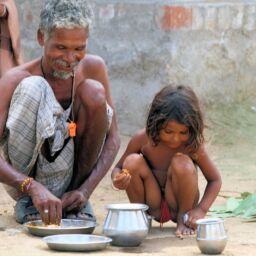Lebanon’s Businesses Survive and Strive Against All Odds

Beirut view/Photo: Unsplash
Lebanon’s economy strives for a limited-service sector revolving around food and beverage, tourism, hospitality, and banking. Limited in its natural resources and exports, it has built a fragile economy that got engulfed in a web of corruption, spiraling out of control, and leading to bankruptcy, reshuffling the country’s demographical distribution, and increasing the waves of immigration. Yet it survives, and some businesses are doing well. How? Lebanon’s tourism has been known regionally and internationally. With the natural beauty of snow-capped mountains, traditional villages, and cities facing the Mediterranean Sea, the country has flourished under the tourism banner, enforcing a tradition of hospitality, excellence in the food and beverage industry, and extravagant nightlife. COVID-19, the Beirut Port Explosion, and Lebanon’s economic meltdown in 2019 have left the country with an unprecedented sense of hopelessness and defeat. Relying almost entirely on services, the economy was badly hit, especially with travel and visits coming to a complete halt.
Lebanon’s economy is mostly built around its service sector and remittances sent by the Lebanese diaspora. According to online reports, the Lebanese “service sector contributes with 75% of the country’s GDP [Gross Domestic Product] and is thus in economic terms the biggest sector primarily based on tourism, financial and banking activities.” Unfortunately, Lebanon is now “the most remittance-dependent country on the planet” reaching 53.8% of the GDP in 2021.
The World Bank 2021 report, showed that “Lebanon’s economic and financial crisis ranks among the worst economic crises globally since the mid-nineteenth century.” However, despite all the complications and ongoing political stalemate that cripples the economy and sets off any concrete plan of action from reaching an adequate solution, some businesses flourish.
With articles and analyses racing to highlight the catastrophic result of the economic meltdown, the reality on the ground leaves both local and international analysts alike, puzzled as to the survival and success of businesses in a politically and economically void environment.
2021 statistics showed that Lebanon’s service sector amounted to 94,15% in 2021 of the country’s GDP, compared to 1.4% in agriculture and 2.76% in the industry sectors. What is really happening on the ground?
The lack of possibilities to make money, and the inability of depositors to access their own bank accounts due to unofficial capital control has left the Lebanese scrambling for ideas that somehow did pay off. Skyrocketing prices, a 264% inflation, and the collapse of the Lebanese pound have pushed local production to unprecedented growth. It has further strengthened a sense of loyalty and growing consumer confidence in Lebanese brands.
Living Off the Land
The service industry has witnessed a resurgence of the more traditional “Lebanese way.” Lebanese, particularly young entrepreneurs, started looking inward to reignite the agro-industry. Beekeeping, honey production, and traditional organic mouneh were among the first businesses that surged in these challenging times.
“Mouneh” is the Arabic word for provisions. It is a tradition that has been recently revived and well marketed to sell locally made produce preserved in a very specific way from one season to another. Families used to live off these mouneh and ensure quality and availability by storing them around the kitchen. The produce varies but includes pickles, tomato paste, all sorts of jams, herbal teas, dried cheese, syrups, grape leaves, thyme, dried tomato and vegetables, and many others.
These ancestral homemade traditions and food heritage were passed down from one generation to another, but fewer young people were interested in keeping the tradition alive, until the country’s economic collapse. Different locals had now the idea of capitalizing off the land, and making a living that would compete both on the local and international markets.
Nearly one-third of Lebanon is arable with the most fertile areas located along the coastal strip overlooking the Mediterranean and in the Bekaa valley. The favorable climate and four seasons allow for the cultivation of a wide variety of vegetables, fruits, industrial crops and cereals.
The Business of Eco-Tourism
But ideas about how to provide services in a collapsing environment, went beyond production, to actual hospitality, environmentally friendly initiatives, and sustainable practices. Recognizing the natural beauty that the country has to offer in various geographical areas, with breathtaking landscapes, many people unleashed the creativity of exploring Lebanon in a unique limelight, off the beaten path by combining guesthouses that are centered on physical activities and wellness programs.
Hotels, hikes, bed and breakfasts, outdoor activities, wellness stays etc. have all resurfaced stronger than ever but with a signature detailing the Made in Lebanon trait and a thirst to showcase the country’s authentic and traditional artisans and Middle Eastern architecture.
The challenges faced on a daily basis from basic necessities, to electricity, and gas did not stop Lebanon’s service sector from expanding into a green movement which left many wondering about the schizophrenic nature of the dichotomy that is so drastically portrayed.
Boosting eco-tourism has taken international proportions with the United Nations Development Programme (UNDP), with partnerships with funds from the Ministry of Foreign Affairs and International Cooperation of the Italian Republic through the Italian Agency for Development Cooperation (AICS), and in coordination with the Ministry of Environment have engaged in the maintenance and upgrade of eight nature reserves throughout Lebanon to allow adequate access to people with different types of disabilities.
Ministers and politicians are all trying to market rural areas and communities in a bid to attract local and international tourism.
Lebanese Wineries Worldwide
Wineries in Lebanon are not a new phenomenon; considered to be one of the most ancient wine producers in the world, some estimate that its production dates back to 7000 BC. Lebanese wineries today are not endless plots of land with vineyards and cellars but have become a must-visit boutique wine destination.
The industry is worth $500 million annually, with the number of producers constantly growing to be estimated today at 46. The country does not produce excessive quantities but rather focuses on quality and service. Online reports, show that “8–9 million bottles are produced annually, with 50% of the output exported to over 35 countries with the UK, France, and the US the major markets at present.”
Winegrowers decided to take their business to a different level and make it a main center of attraction when considering Lebanon as a tourist destination or as a business opportunity. Turning their facilities into state-of-the-art venues, the wineries provide an ideal gateway from the bustling cities into an oasis of luxury, tranquility, and impeccable quality.
Some have built guesthouses, restaurants, tours around the premise, and wine tasting with stellar food; but the main event is an experience that transports the visitors into Lebanon’s historic wine tradition while taking a walk around the chateaus that have become part of the country’s pride and identity.
In 2022, 5 Lebanese vineyards ranked among the best in the world.
Summer 2023
According to online reports, Lebanon is expecting around 2.2 million tourists who will pump into the cash-strapped economy about $9 billion in tourism revenue in 2023.
The Syndicate of Restaurant Owners in Lebanon has recently announced the tourism sector’s readiness to welcome tourists for summer 2023. During an event, the syndicate president Tony Ramy specified that around 250 tourist facilities, including resorts, clubs, and hotels have opened or reopened their doors for the summer.
Seasonal locations are also providing reasons for the expansion of new restaurant branches and the establishment of new ones. While known restaurants expand, we’re also witnessing a surge of new restaurants, showing investors’ confidence in the service sector.
Ramy spoke to the media, clarifying that if the political stalemate is resolved with the election of a president and a functional government, there would be no need for financial assistance from the International Monetary Fund, and that the sector alone if allowed to truly operate amidst a favorable environment, can bring “$10 billion to the country.”
Lebanon bets big on seasonal visitors and tourism to bring along much-needed fluidity and restore confidence in its service sector. At the turn of every season or big occasion, the Ministry of Tourism provides incentives and support to facilitate businesses to operate at their optimal level.
At the Berlin Tourism Exchange in March 2023, Lebanon’s Ministry of Tourism won the “Best Arab Tourism Site” and the “Best Arab Promotional Campaign Award” for its 2022 summer campaign “Ahla Bhal Talli” proving that tourism was and still is the main source of income that ensures fast-cash, employment, business opportunities and a positive image.
The ministry shows no sign of slowing down, with a recent cooperation agreement signed almost a week ago with the respective ministries of Greece and Cyprus, in a bid to increase tourism between the countries.
More summer and seasonal initiatives will see the light as young locals capitalize on the best that Lebanon has to offer in its service industry.
By Marita Kassis

















